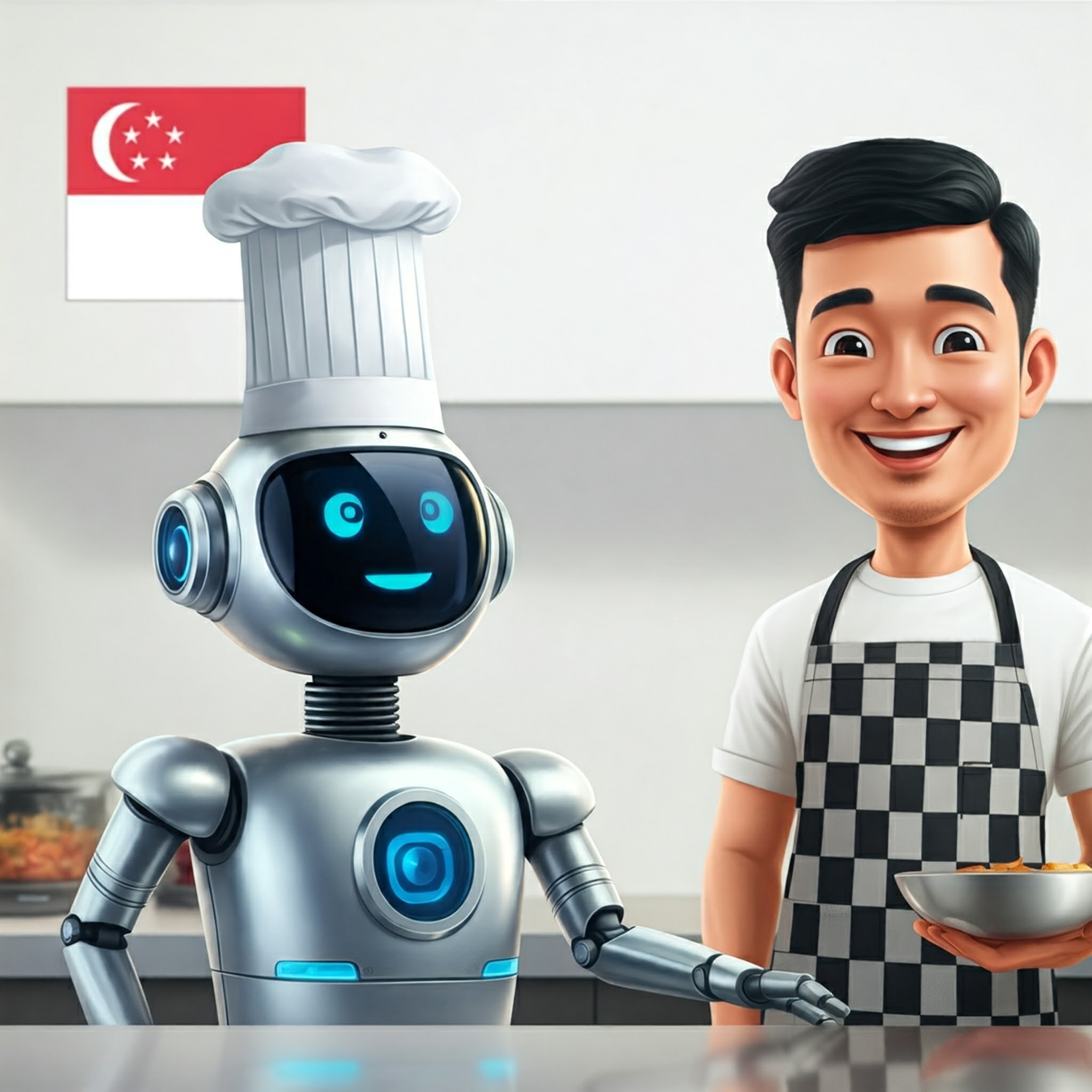Singapore, a bustling metropolis known for its efficiency and technological advancements, is on the brink of a transformation that could significantly alter the dynamics of its domestic workforce. With the rise of artificial intelligence (AI) and robotics, the question on everyone’s mind is: will robots eventually replace human domestic workers in Singaporean homes?
Having lived in Singapore for over seven years, I have witnessed firsthand the integral role that foreign domestic workers play in the fabric of Singaporean society. These hardworking individuals, primarily from the Philippines, India, and Indonesia, provide invaluable services, including childcare, cooking, cleaning, and elderly care, allowing many Singaporeans to pursue their careers and maintain their demanding lifestyles. However, factors such as rising costs, privacy concerns, and the desire for more flexible solutions are fuelling the demand for AI-powered alternatives.
While the complete replacement of domestic workers by robots may still be some years away, AI is already making significant inroads into the domestic sphere. Here’s how I believe AI will reshape domestic work in Singapore and the potential implications for domestic workers:
The Rise of the Machines
Specialised robots are emerging to tackle specific household tasks. Robotic vacuum cleaners and mops are already commonplace in many Singaporean homes, automating floor cleaning with increasing efficiency. Advanced models equipped with AI can map rooms, avoid obstacles, and even empty their dustbins, minimising human intervention. Laundry robots are also on the horizon, with prototypes being developed to fold clothes, sort laundry, and even iron garments. While not yet commercially viable, these robots could significantly reduce the time spent on laundry chores.
In the kitchen, AI-powered assistants are beginning to make their presence felt. These culinary robots can follow recipes, chop vegetables, and stir ingredients, taking some of the burden off human cooks. While they may not be able to replicate the nuanced flavors of a home-cooked meal, they can assist with basic meal preparation, freeing up time for other tasks.
Beyond specialised robots, multi-purpose home robots are also gaining traction. Personal assistants like Amazon Echo and Google Home can already control smart home devices, play music, and answer questions. Future iterations could have robotic bodies, enabling them to perform physical tasks like fetching objects or delivering messages. Companion robots are also being developed to provide social interaction and companionship, particularly for the elderly or those living alone. These robots can engage in conversations, play games, and even monitor health conditions, offering a sense of connection and support.
AI is also transforming home management systems. Smart homes, powered by AI, can integrate and control various home appliances and systems, optimising energy usage, enhancing security, and automating tasks like adjusting lighting and temperature. AI-powered apps can track household inventory, predict needs, and automatically order groceries for delivery, eliminating the need for time-consuming grocery shopping trips.
The Human Element
The rise of AI in domestic work raises concerns about the future of domestic workers in Singapore. While complete replacement may not be imminent, the following implications are likely:
- Shift in Demand: The demand for domestic workers may shift towards specialised skills, such as elderly care, which require human empathy and emotional intelligence, skills that are difficult to replicate in robots. Employers might specifically look for domestic workers with experience in specialised caregiving, child development and education, nutrition and specialised cooking, and home management with AI integration.
- Upskilling and Reskilling: Domestic workers may need to acquire new skills to operate and maintain AI-powered home devices or to provide complementary services alongside robots. Key areas for upskilling include basic digital literacy, technical troubleshooting, data privacy and security, and interpersonal communication and emotional intelligence.
- New Opportunities: AI could create new job opportunities in areas like robot maintenance, technical support, and AI training for domestic workers. This could lead to new career paths within the domestic work sector, potentially offering higher wages and improved working conditions.
Navigating the Ethical Landscape
The increasing use of AI in homes raises ethical concerns about data privacy, algorithmic bias, and the potential for job displacement. It’s crucial to address these concerns through regulations and guidelines that protect both employers and domestic workers.
The Future of Domestic Work
The integration of AI into domestic work is likely to be a gradual process, with robots and humans working together to manage households. The future may involve a collaborative approach, where robots handle repetitive and mundane tasks, freeing up domestic workers to focus on more complex and interpersonal aspects of caregiving.
Conclusion
While AI and robotics are poised to revolutionise domestic work in Singapore, the complete replacement of domestic workers is unlikely in the near future. Instead, a collaborative model, where humans and robots work together, is more probable. This transition will require careful consideration of ethical implications and proactive measures to support domestic workers in adapting to the changing landscape of domestic work. By embracing technology and investing in upskilling initiatives, Singapore can ensure a smooth transition towards an AI-powered future while safeguarding the well-being of its domestic workers.



